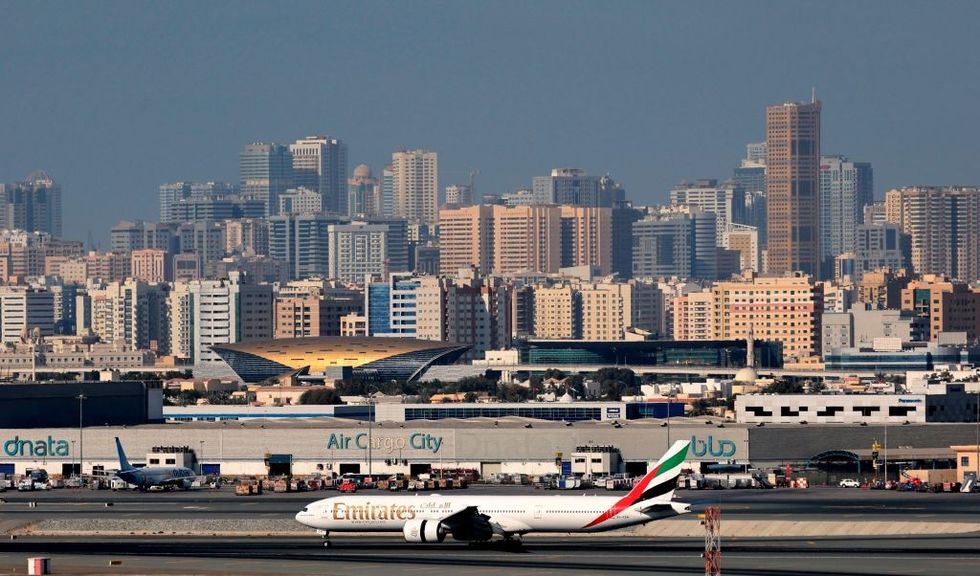DOHA has taken a lead over Dubai in a battle to become the pre-eminent travel hub in the middle east, travel analytics firm ForwardKeys has found in latest research. Crunching the world’s freshest and most comprehensive flight-booking data, ForwardKeys has said that the Qatar city has gone ahead of its United Arab Emirates (UAE) counterpart in the first half of 2021.
It has revealed that in the period between January 1 and June 30, the volume of air tickets issued for travel via Doha was 18 per cent higher than it was through Dubai and it seems the trend will continue. Current bookings for the second half of the year through Doha is 17 per cent higher than that through Dubai.
ForwardKeys also said that air traffic through Doha was at 77 per cent of that of Dubai at the beginning of the year but then it dashed to reach 100 per cent for the first time during the week that started on January 27.
One of the reasons for Doha’s surge has been the lifting of the blockade of flights to and from Qatar, which drew the ire of other middle eastern countries like Saudi Arabia, Bahrain, Egypt and the UAE who accused Doha of sponsoring terrorism. The blockade was imposed in June 2017 though Qatar denied the charges.

The blockade had an immediate consequence for Doha’s aviation industry. For instance, Qatar Airways was forced to put 18 destinations out of its network list. Besides, various flights that flew via Doha saw extended journey times as planes had to bypass the air space of the countries that blockaded Qatar. However, Qatar Airways did not cut back as a response to the blockade. Instead, it opened 24 new routes to utilise its planes.
Olivier Ponti, vice president Insights, ForwardKeys, said, “Without the blockade, which encouraged the establishment of new routes as a strategy to replace lost traffic, perhaps we would not have seen Doha charging past Dubai. So, it seems that the seeds of Doha’s relative success were, ironically, sown by the adverse actions of its neighbours. However, one needs to bear in mind that flights through the middle east during H1 2021 were still 81% below pre-pandemic levels. So, as the recovery gathers pace, the picture could change significantly.”
Since January this year, five routes (to and from Doha) – Cairo, Damman, Dubai, Jeddah and Riyadh have been reopened and they have seen a growth in traffic. The routes which have made the most substantial relative contribution to visitor arrivals are: Damman to Doha and Dubai to Doha. Besides, new connections with destinations like Seattle and San Francisco in the US and Abidjan in Ivory Coast were set up in December 2020, January 2021 and June 2021, respectively.
The major existing routes which have seen the strongest growth compared to the pre-pandemic levels by total number of passengers arriving in Qatar are: Sao Paulo (up 137 per cent), Kiev (up 53 per cent), Dhaka (up 29 per cent) and Stockholm (up 6.7 per cent). Seat capacity between Doha and cities like South Africa, Male and Lahore has also seen an increase by 25 per cent, 21 per cent and 19 per cent, respectively, said ForwardKeys, a firm has pioneered the way forward for tourism organisations, hotels and retailers keen to understand who is travelling where, when and for how long.
Analysis has also shown that in the coming quarter (Q3 2021), seat capacity between Doha and its middle eastern neighbours will be only 5.6 per cent less than the pre-pandemic levels and the majority of it (51.7 per cent)is allocated to reinstated routes to/from Egypt, Saudi and the UAE.
Reaction to pandemic is another factor
Another major factor which has helped Doha take the lead over Dubai is the reaction to the pandemic. At the peak of the Covid-19 pandemic, many routes in and out of Doha remained operational and that made it a major hub for repatriation flights, particularly to Johannesburg and Montreal.
A study of the market share in the first half of 2021 against that of 2019 shows that the Qatar city has substantially improved its position vis-à-vis the Emirates cities of Dubai and Abu Dhabi. While the hub traffic was divided as Dubai (44 per cent), Doha (21 per cent) and Abu Dhabi (13 per cent), it is currently Doha (33 per cent), Dubai (30 per cent) and Abu Dhabi (9 per cent).




